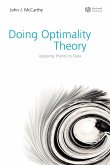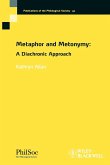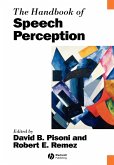An engaging and fresh take on the rules and politics of English grammar, this book goes a step further than most books on grammar by providing an overview of the field. It presents a novel, inquiry-based approach to understanding speakers' unconscious knowledge of English grammar, and examines historical sources of socially evaluative perceptions of grammar, as 'good' or 'bad', and the notion of language authority. It also gives an overview of the history of modern punctuation, the arbitrary roots of many modern rules, and how many punctuation rules make no grammatical sense, and looks at the controversy over grammar as part of the public school curriculum, how assessment has changed, and the history of the role of grammar in education.
While most grammar books start and stop with an explanation of parts of speech and sentence structure, Navigating English Grammar goes a step further to provide an overview of the field, with a discussion of historical and current debates about grammar, and how we define, discuss, and approach it. The authors use grammar as a springboard to discuss semantics and morphology; how usage and sentence structure affects style in writing; abbreviated style in the digital age; and the syntax of poetry, fiction, and other genres. Along the way they give examples and analysis of texts. Among other controversies, the authors delve into the sociopolitical aspects of grammar rules, the subjectivity of pet peeves and grammar police, the changing ways grammar has been taught, and how assessment and a changing educational climate has influenced this. They also lay out the fascinating history of the linguistic tradition, from the Sanskrit grammar of Panini (c. 520-460 BCE), sometimes considered a founder of linguistics, to the ancient Greeks, the development of the Western tradition, and through the rise of 'correct' English grammar in the 17th century to the present day. Navigating English Grammar is an engaging and fresh take on the rules and the politics of English grammar, written in lively, inviting prose.
Hinweis: Dieser Artikel kann nur an eine deutsche Lieferadresse ausgeliefert werden.
While most grammar books start and stop with an explanation of parts of speech and sentence structure, Navigating English Grammar goes a step further to provide an overview of the field, with a discussion of historical and current debates about grammar, and how we define, discuss, and approach it. The authors use grammar as a springboard to discuss semantics and morphology; how usage and sentence structure affects style in writing; abbreviated style in the digital age; and the syntax of poetry, fiction, and other genres. Along the way they give examples and analysis of texts. Among other controversies, the authors delve into the sociopolitical aspects of grammar rules, the subjectivity of pet peeves and grammar police, the changing ways grammar has been taught, and how assessment and a changing educational climate has influenced this. They also lay out the fascinating history of the linguistic tradition, from the Sanskrit grammar of Panini (c. 520-460 BCE), sometimes considered a founder of linguistics, to the ancient Greeks, the development of the Western tradition, and through the rise of 'correct' English grammar in the 17th century to the present day. Navigating English Grammar is an engaging and fresh take on the rules and the politics of English grammar, written in lively, inviting prose.
Hinweis: Dieser Artikel kann nur an eine deutsche Lieferadresse ausgeliefert werden.
"Navigating English Grammar is a superb introduction to English grammar and grammatical analysis. Lobeck and Denham guide readers through the essentials of English with vivid, up-to-date usage examples and just the right amount of clearly explained linguistic theory." - Edwin Battistella, Southern Oregon University
"Lobeck and Denham make a plausible Socrates, prodding their interlocutors into discovering their own, internal language system. Readers learn much about scientific methods, honed by years working in schools and understanding adolescent minds, and are liberated from foolish social judgments about people's language." - David Lightfoot, Georgetown University
"Lobeck and Denham make a plausible Socrates, prodding their interlocutors into discovering their own, internal language system. Readers learn much about scientific methods, honed by years working in schools and understanding adolescent minds, and are liberated from foolish social judgments about people's language." - David Lightfoot, Georgetown University








